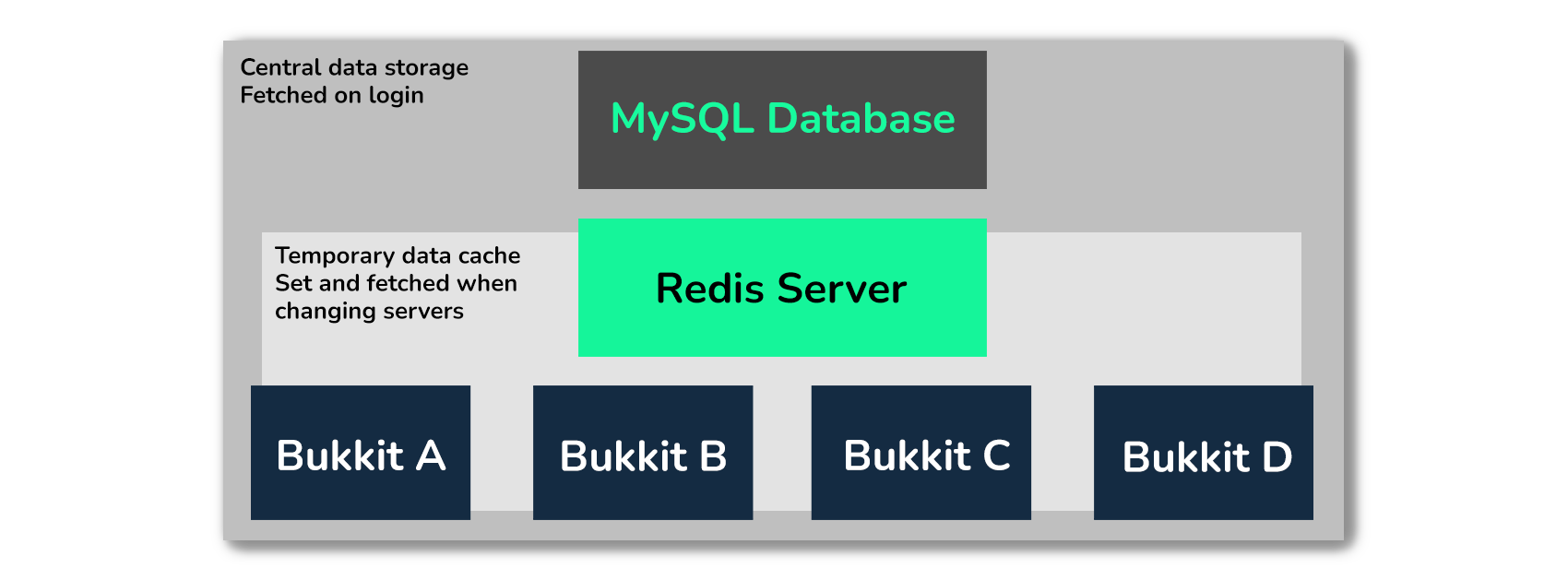-
-
Notifications
You must be signed in to change notification settings - Fork 142
FAQs
This page addresses a number of frequently asked questions about the plugin.
What data can be synchronised?
HuskSync supports synchronising a wide range of different data elements, each of which can be toggled to your liking. Please check out the Sync Features page for a full list.
Is Redis required? What is Redis?
HuskSync requires Redis to operate (for reasons demonstrated below). Redis is an in-memory database server used for caching data at scale and sending messages across a network. You have a Redis server in a similar fashion to the way you have a MySQL database server. If you're using a Minecraft hosting company, you'll want to contact their support and ask if they offer Redis. If you're looking for a host, I have a list of some popular hosts and whether or not they support Redis available to read here.
How does the plugin synchronise data?
HuskSync makes use of both MySQL and Redis for optimal data synchronisation.
When a user changes servers, in addition to data being saved to MySQL, it is also cached via the Redis server with a temproary expiry key. When changing servers, the receiving server detects the key and sets the user data from Redis. When a player rejoins the network, the system fetches the last-saved data snapshot from the MySQL Database.
This approach is able to dramatically improve both synchronisation performance and reliability. A few other techniques are used to optimize this process, such as comrpessing the serialized user data json using Snappy.
Why doesn't HuskSync sync player economy balances / support Vault?
This is a very common request, but there's a good reason why HuskSync does not support this.
The Vault API is designed to be a central "Vault" for storing user data. It's the role of economy plugins that implement vault to handle the data storage -- and, by extension, synchronization cross-server. Plugins that hook into Vault then expect to be able to use the Vault API to get the player's latest economy balance and data.
Plugins such as MySQLPlayerDataBridge that support synchronizing Vault hook into Vault and as a result can violate this expectation—plugins that expect Vault to return the latest user data no longer can. As a result, plugins like MySQLPlayerDataBridge have to provide lots of manual hooks and tweaks for individual plugins to ensure compatibility.
This causes all sorts of compatibility issues with unsupported plugins and increases plugin size and update workload.
As a result, I recommend using an economy plugin (that directly implements the Vault API), that works cross-server. XConomy is a popular choice for this, which I have personally had a good experience with in the past.
Is this better than MySQLPlayerDataBridge?
I can't provide a fair answer to this question! What I can say is that your mileage may vary. The performance improvements offered by HuskSync's synchronisation method will depend on your network environment and the economies of scale that come with your player count.
A migrator from MPDB is built-in to HuskSync.
| This documentation is available via william278.net |
|---|
- 📚 Setup
- 💾 Database
- ✨ Redis
⚠️ Compatibility- 📄 Config File
- 🔗 Troubleshooting
- 🖥️ Commands
- ✅ Sync Features
- ⚙️ Sync Modes
- ↪️ Data Rotation
- ❓ FAQs
↗️ Legacy Migration- ✨ MPDB Migration
- ☂️ Dumping UserData
- 🟩 Plan Hook
- 📋 Event Priorities
- ⚔️ Keep Inventory
- 🎏 Translations
- 💻 GitHub
- 📂 Buy HuskSync
- 🚰 Spigot
- 🛒 Polymart
- ⚒️ BuiltByBit
- 💬 Discord Support
